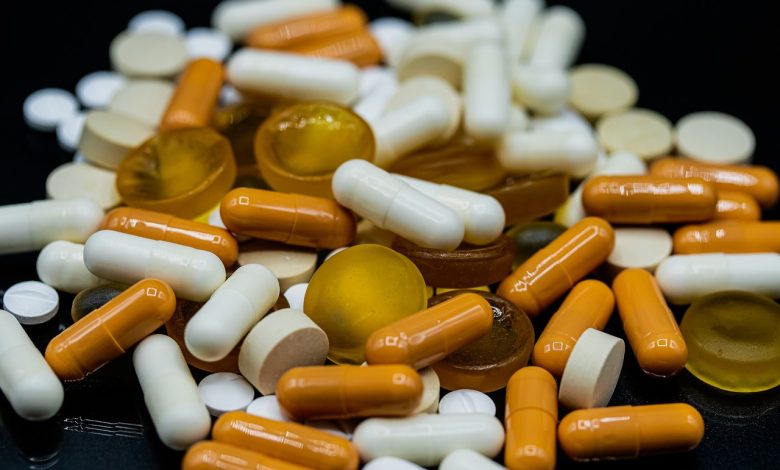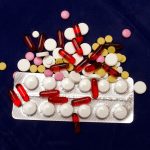List of Drugs to Avoid With G6PD Deficiency

Healthcare providers always advise that you exercise caution when taking medication if you suffer from a genetic condition because some genetic conditions can affect the way your body processes and metabolizes medications, which can increase your risk of side effects or adverse reactions.
For example, there are genetic conditions that increase your risk of developing hemolytic anemia if you take certain medications, such as antimalarials, antibiotics, and aspirin. This is because these medications can trigger the breakdown of red blood cells in people with such conditions. Some people with other genetic conditions may be more sensitive to certain medications or may metabolize medications differently than people without the condition. This can increase the risk of side effects or may affect the effectiveness of the medication.
What is G6PD deficiency?
Glucose-6-phosphate dehydrogenase (G6PD) deficiency is a genetic disorder that affects the function of red blood cells. People with G6PD deficiency have lower levels of the G6PD enzyme, which helps to protect red blood cells from damage caused by certain chemicals, drugs, and infections.
G6PD deficiency is inherited in an X-linked recessive manner, meaning that the defective gene is located on the X chromosome. This means that males are more likely to be affected by the condition than females, as they only have one X chromosome. Females who have one copy of the defective gene may be carriers of the condition but are often not affected.
Symptoms of G6PD deficiency can range from mild to severe and may include hemolytic anemia (a condition where the red blood cells are destroyed faster than they can be produced), jaundice, and dark-colored urine. These symptoms may be triggered by certain drugs (such as antimalarials, antibiotics, and aspirin), infections, or exposure to chemicals (such as mothballs and naphthalene).
How common is G6PD deficiency
G6PD deficiency is a relatively common genetic disorder, particularly in certain populations. It is estimated that around 400 million people worldwide are affected by G6PD deficiency, with a higher prevalence in certain regions such as Africa, the Middle East, and parts of Asia.
In some populations, such as those in certain parts of Africa and the Mediterranean, the prevalence of G6PD deficiency can be as high as 20% or more. However, the exact prevalence of G6PD deficiency varies widely depending on the population and region studied. In some parts of the world, particularly in Europe and North America, the prevalence of G6PD deficiency is relatively low.
It’s important to note that the prevalence of G6PD deficiency can also vary within populations and ethnic groups. Therefore, it’s always best to consult with a healthcare provider or genetic counselor to determine your specific risk of having G6PD deficiency, particularly if you have a family history of the condition.
List of Drugs to Avoid WITH G6PD Deficiency
There are several drugs that are considered unsafe for people with G6PD Deficiency. However, it’s important to note that the specific drugs to avoid with G6PD deficiency may vary depending on the individual, the severity of the condition, and other factors.
Additionally, some medications may be safe to use in low doses or under certain conditions, so it’s always best to consult with a healthcare provider or genetic counselor before taking any medication if you have G6PD deficiency.
That being said, here is a list of 20 drugs that may be unsafe or should be used with caution in people with G6PD deficiency:
1. Chloramphenicol: This antibiotic can cause hemolytic anemia in people with G6PD deficiency, particularly in high doses or with prolonged use.
2. Nitrofurantoin: This antibiotic is commonly used to treat urinary tract infections, but can also cause hemolytic anemia in people with G6PD deficiency.
3. Dapsone: This medication is used to treat skin conditions and leprosy, but can also cause hemolytic anemia in people with G6PD deficiency.
4. Primaquine: This medication is commonly used to treat and prevent malaria, but can cause severe hemolytic anemia in people with G6PD deficiency.
5. Rasburicase: This medication is used to treat high levels of uric acid in the blood, but can cause hemolysis in people with G6PD deficiency.
6. Quinine: This medication is used to treat malaria and other conditions, but can cause hemolytic anemia in people with G6PD deficiency.
7. Sulfamethoxazole: This antibiotic is commonly used to treat bacterial infections, but can cause hemolytic anemia in people with G6PD deficiency.
8. Sulfasalazine: This medication is used to treat inflammatory bowel disease, but can cause hemolytic anemia in people with G6PD deficiency.
9. Probenecid: This medication is used to treat gout and other conditions, but can cause hemolytic anemia in people with G6PD deficiency.
10. Methylene blue: This medication is used as a dye and to treat certain conditions, but can cause hemolysis in people with G6PD deficiency.
11. Isoniazid: This medication is used to treat tuberculosis and other conditions, but can cause hemolytic anemia in people with G6PD deficiency.
12. Aspirin (in high doses): High doses of aspirin can cause hemolytic anemia in people with G6PD deficiency.
13. Phenazopyridine: This medication is used to treat urinary tract infections, but can cause hemolytic anemia in people with G6PD deficiency.
14. Phenacetin: This medication is a pain reliever and fever reducer, but can cause hemolytic anemia in people with G6PD deficiency.
15. Napthalene: This chemical compound is found in certain products, such as mothballs, and can cause hemolytic anemia in people with G6PD deficiency.
16. Acetanilide: This medication is a pain reliever and fever reducer, but can cause hemolytic anemia in people with G6PD deficiency.
17. Fava beans: Eating fava beans can trigger hemolytic anemia in people with G6PD deficiency.
18. Naphthalene-containing mothballs: These products contain napthalene and can cause hemolytic anemia in people with G6PD deficiency.
19. Vitamin K analogs (such as menadione): These compounds can interfere with the metabolism of red blood cells and may cause hemolytic anemia in people with G6PD deficiency.
20. Rasburicase: This medication is used to treat high levels of uric acid in the blood, but can cause hemolysis in people with G6PD deficiency.
Again, this list is not exhaustive and the specific drugs to avoid or use with caution may vary depending on individual factors. Always consult with your healthcare provider or genetic counselor before taking any medication if you have G6PD deficiency.





